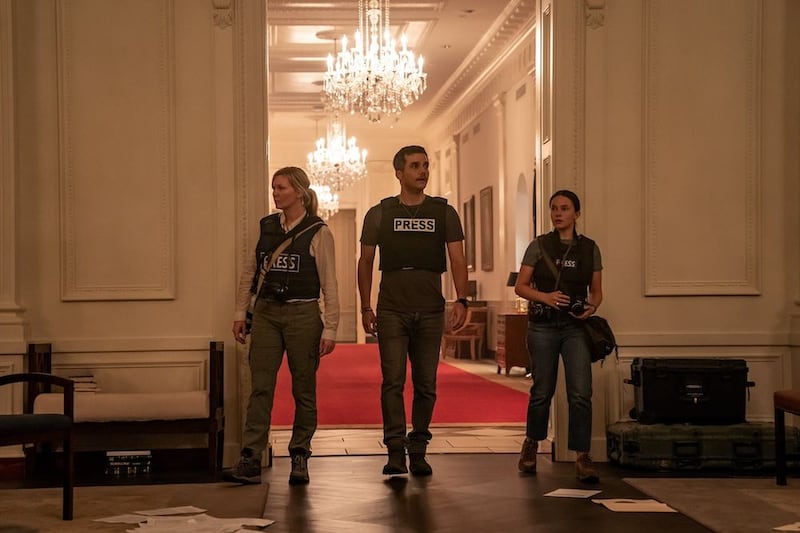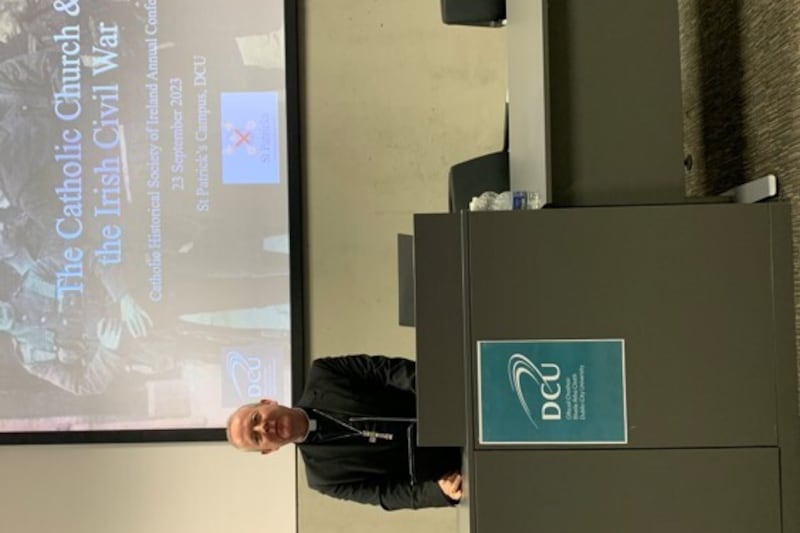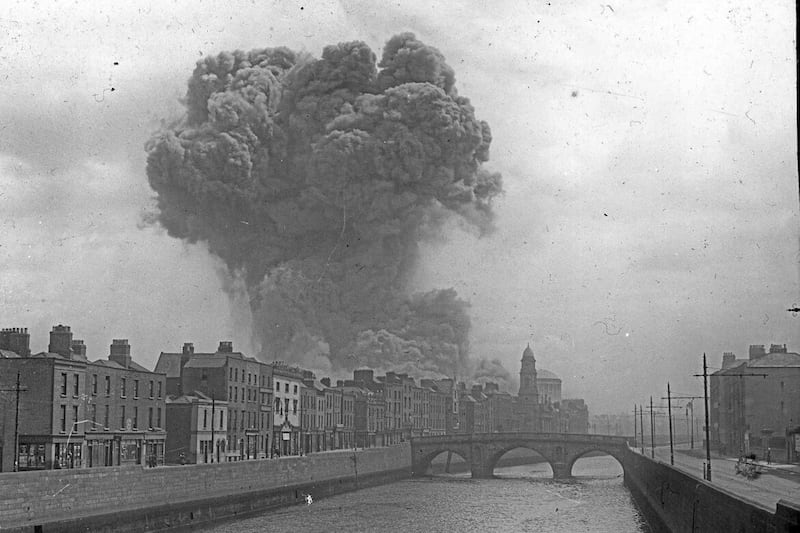Ireland's Catholic Bishops provoked "much hurt and anguish" among families over their position during the Civil War, including the failure to publicly condemn atrocities committed by the pro-treaty national government, All-Ireland Primate Archbishop Eamon Martin said in a keynote address at the weekend.
Archbishop Martin, speaking at the annual conference of the Catholic Historical Society of Ireland, cited the controversy over the UK government's Legacy Bill as a reminder "wounds of an unresolved past....particularly a past which involves trauma and loss - almost always fester".
"They hamper the achievement of common purpose and shared endeavour in the present and for the future, " Archbishop Martin told the audience at Dublin City University's Seamus Heaney Lecture Theatre.

At the core of the address was a pastoral letter from the Irish Bishops' Conference in October 1922, at the height of the Civil War.
It "clearly provoked much hurt and anguish among families which has permeated down the generations", the archbishop said, adding there is "no doubt...the....letter was exploited and distorted to excuse and provide moral justification for un-Christian, sinful and criminal behaviour"
"The bishops’ failure to name and shame the atrocities being committed by the pro-Treaty side fed the narrative that they spoke with two voices: that the Free State government could act with impunity, whilst those continuing the armed struggle for an all-Ireland solution could do no good," the Archbishop argued.

He added: "Experience tells us that those who understand the past more deeply and honestly will be more likely to be open to engage in the work of reconciliation."
Read more: GAA's role in healing Irish Civil War divisions explored in new documentary
Read more: 100 years since end of Irish Civil War commemorated in Dublin
Archbishop Martin said the address drew on the work of the Catholic Historical Society of Ireland and others which helped bring to light the "interaction between the Catholic Church and the civil war".
"The Church has not been immune from the tendency to try to ‘move on’ from our civil war past. Like most others, we have often preferred to ‘leave well enough alone’," he added.
"It is clear from today’s papers and subsequent discussions that the pastoral letter of the Irish bishops in October 1922 represented the Church’s most controversial intervention during the Civil War period.

While the Bishops called on the Free State Government's opponents to pursue electoral means, they proposed denying absolution or Holy Communion to those "who would persevere in violent resistance, urging them to repent of their ‘grave sins’ and to cease what the bishops called this ‘lamentable upheaval’".
"It must be acknowledged, however, that, in contrast to their explicit condemnation of crown forces and the British regime only a few years previously, the bishops’ failure to name and shame the atrocities being committed by the pro-Treaty side fed the narrative that they spoke with two voices: that the Free State government could act with impunity, whilst those continuing the armed struggle for an all-Ireland solution could do no good.
"Similarly, as we have heard, bishops’ acceptance of the morality of the previous republican struggle during the War of Independence, and even of previous hunger strikes, led to accusations against them of political expediency and manoeuvring for political power and influence.
"This was clearly behind what has been described today as the widespread ‘dismay and disgust’ of republicans at the bishops’ position, seeing it as hypocritical.
"The silence of the bishops in failing to publicly repudiate or condemn multiple executions of anti-Treaty republicans or the sometimes brutal actions of the National army, most definitely undermined the words of their own pastoral letter."
Senior prelates privately did call on the government to end the executions but not publicly, leaving "a long lasting bad taste that they were not impartial towards violence and destruction".








